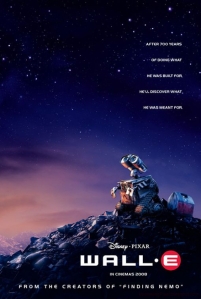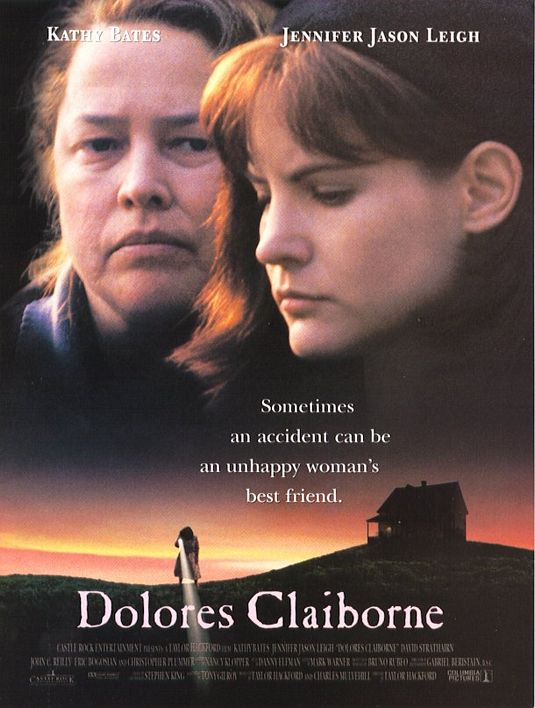 Film:
Film:
Sunshine Cleaning, 2009
Starring Amy Adams, Emily Blunt, Alan Arkin, and Steve Zahn.
Synopsis (From IMDB):
Rose Lorkowski (Amy Adams) finds herself a single mother attempting to support her son Oscar (Jason Spevack) and her unreliable sister Norah (Emily Blunt) while working a mundane job as a maid. Once the head cheerleader in school with plenty of prospects, Rose now has little to show for her years, and while she still sees the former lead football player (Steve Zahn), it is little more than a despondent affair. When Oscar is expelled from public school, Rose takes a job as a bio-hazard crime-scene cleaner to help pay for a private education, and brings Norah on to help in her steadily growing business. As the sisters work to clean up the messes left behind by the chaotic lives of others, they must learn to reconcile their own differences and overcome a troubled past if they hope to prosper in their newfound venture.
My Thoughts:
I do not know why I have been attracted to watching films which have centered around death lately. Perhaps that is what life and spirituality are all about: to prepare us for death and encourage us to make the most of the time we have on earth.
Sunshine Cleaning focusses on people who have struggled with making the most out of life. It is revealed throughout the film that there are actually a lot of unresolved issues as well as grief- burdens that justifiably have weighed on these very real, and very relatable characters- which explain why it has been hard for them to thrive. This films does an excellent job of feeling real, like you could actually know these people. They do not have superpowers, they are not uncommenly witty, things do not work out magically for them. Instead, they are people like you or me who have to struggle with work and with daily life.
Rose Lorkowski (Amy Adams) immediately captures your heart. She tries to keep upbeat despite having a lousy job, raising a child alone, and having to care for her quirky father, and her nare-do-well sister. She is also having an affair with her (now married) high school sweetheart. Her self esteem has taken quite a beating and her parental and financial troubles are incredibly stressful, yet she does not give up and strives to remain upbeat even if the smile is strained.
Therefore, strive to show in the human world that women are most capable and efficient, that their hearts are more tender and susceptible than the hearts of men, that they are more philanthropic and responsive toward the needy and suffering, that they are inflexibly opposed to war and are lovers of peace. ~ ‘Abdu’l-Bahá
When an opportunity presents itself Rose decides to start her own business and go into Bio-hazard Crime Scene cleaning. At first she has no idea what she is doing, but with the help of her sister and a friendly Janitorial Supply Store owner, she is able to build it up. She decides to call the business “Sunshine Cleaning” which is indicative of her outlook. Crime scenes are messy. They are full of blood and often other vile things like rotting food or trash. People look at what she does as morbid. Yet Rose looks past that to the good, of being able to help people through a hard time and making the world a little better and easier for them.
“We come into people’s lives when they’ve experienced something profound. And we help. In some small way, we help.” ~ Rose Lorkowski (Amy Adams)
This is really what I would like to focus on, how to Rose this is not just a job, it’s a service. It is a way she can show people love and compassion. Crime scenes are not easy deaths. She cleans up homicides and suicides, and there are people left behind in shock dealing with the tragedy. This is juxtaposed with her prior job cleaning homes of the privileged, of partying college students. While is is the same skill set, the same technical job, cleaning the homes of the dead and removing the bio-hazards and evidence of crime takes it to another level. Any job we do, whether maid, doctor, accountant, or engineer, can be transformed into a spiritual experience when we think of the people we are serving and put them first. Rose did just that.
The education of each child is compulsory…. In addition to this wide-spread education each child must be taught a profession, art, or trade, so that every member of the community will be enabled to earn his own livelihood. Work done in the spirit of service is the highest form of worship… ~ ‘Abdu’l-Bahá
And she discovered this profession in a time of her own desperation. Her son was given the ultimatum to go on behavior modifying drugs or be kicked out of school. She knew that drugging her son was not the answer and wanted to put him in a school that would better cater to his learning differences. Out of love for him she tried a new job, despite her misgivings, and discovered her love for it and the people she was able to help.
Unfortunately it was almost all taken away from her when there was fire which brunt down a clients house. Rose had been waiting for the results of her certification exam before purchasing insurance for her business, hoping a good result would lead to lower rates and therefore had no safety net. She was devastated to watch everything she had worked for, literally, go up in flames.
O SON OF MAN! Should prosperity befall thee, rejoice not, and should abasement come upon thee, grieve not, for both shall pass away and be no more. ~
Word must be conjoined with deed. You must love your friend better than yourself; yes, be willing to sacrifice yourself… I desire that you be ready to sacrifice everything for each other, even life itself… ~’Abdu’l-Bahá
Watching this film made me ask myself: Am I ready to serve? Am I ready to truly sacrifice? On this earth we all have a part to play, and what I do know is that I too am not living to my fullest capacity. I could serve with a pure heart more often, and sacrifice my time, means, and energy more fully, and help to bring a little more love and a little more peace to this world. So often when we talk about peace we think big, ending wars, but wars are just social ills scaled upward. In the Lorkowski family there were internal wars that needed a peaceful resolution. So often when we talk of love we talk of romance, but love is more than that.
I charge you all that each one of you concentrate all the thoughts of your heart on love and unity. When a thought of war comes, oppose it by a stronger thought of peace. A thought of hatred must be destroyed by a more powerful thought of love. Thoughts of war bring destruction to all harmony, well-being, restfulness and content. Thoughts of love are constructive of brotherhood, peace, friendship, and happiness. ~’Abdu’l-Bahá
I can do these two things. I can conquer my thoughts of hate with thoughts of love, and I can overcome thoughts of war with thoughts of peace, and maybe in doing that bit by bit day by day, I like Rose can make the world a little better.




 Film:
Film:





